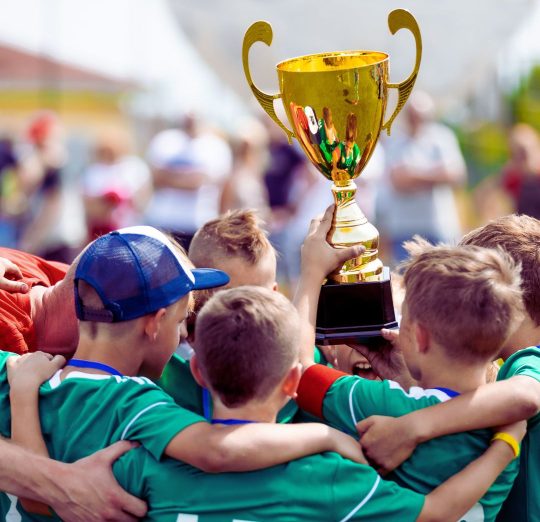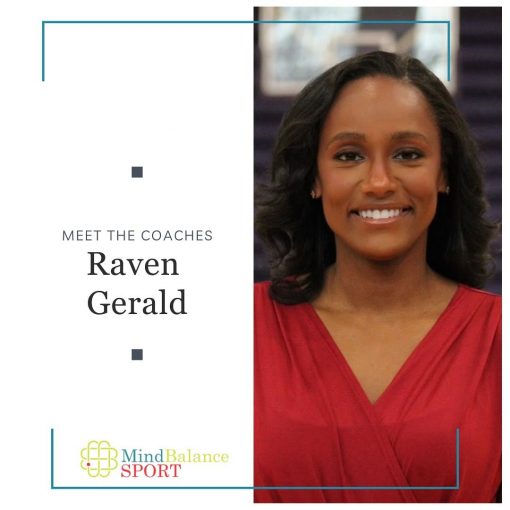Sports Psychologist in Takoma Park, MD
You want to work on your mental game, but how do you train your brain?
At MindBalanceSPORT, We Train The Other Half Of The Athlete.
You want to work on your mental game, but how do you train your brain?
Mental training does not get much media attention, but at MindBalanceSPORT we know it is a game changer. The mental skills you will learn at MindBalanceSPORT are generalizable in the classroom, in sport and in life!
We know that mental skills can be successfully taught, even at an early age.

Our Services
Meet the Team





testimonials
Athlete Stories: Real Comebacks, Real Results

Emma, a high school basketball player, tore her ACL in the middle of her junior season. After surgery, she struggled with self-doubt and fear every time she stepped back on the court. Through sport psychology training, she learned visualization techniques and confidence-building exercises that helped her regain trust in her knee. When she returned for her senior season, she didn’t just play—she led her team to the playoffs.

Carlos, a soccer player, suffered a stress fracture in his foot and had to miss half of his season. Sitting out was mentally tougher than the pain itself. We worked on mental engagement strategies to keep him sharp—studying game film, setting small rehab goals, and using mental imagery to stay ready. When he was finally cleared, his confidence never wavered.

Jordan, a track athlete, strained her hamstring before a major competition. She feared losing speed and falling behind competitors. Instead of focusing on what she couldn’t do, we redirected her energy toward mental preparation, using self-talk and goal setting to keep her confidence strong. When she returned, she set a new personal record.
EXCELLENTTrustindex verifies that the original source of the review is Google. It was a great help to my 14-year-old competitive volleyball player daughter. Raven was great to understand and connect with her from start to end. We will continue with our sessions as needed.Trustindex verifies that the original source of the review is Google. Great results! I’ve loved working with Paula. Our sessions have greatly improved both the physical and mental aspects of my tennis game. I’m playing better and having more fun! Highly recommend!Trustindex verifies that the original source of the review is Google. Our family had a wonderful experience with Paula Castro. We needed some additional confidence in a particular area/sport and Paula helped get us there. We know who to turn to if we need help again. She’s been a Blessing. Thank you, Paula!Trustindex verifies that the original source of the review is Google. I highly recommend MindBalanceSPORT. Our son works with John Howard. John is very caring, positive, and effective at working with teenagers. John is an adept listener and created an individualized plan tailored to our son’s personality. After just a few sessions with John, we noticed a significant improvement in our son’s motivation and mental approach to sports and life in general. Our son looks forward to meeting with John and tells us that he benefits immensely from their connection.Trustindex verifies that the original source of the review is Google. Paula Castro is an outstanding professional on the field. She has helped my daughter improve her confidence, preparation, and thanks to these session she feels more prepared and motivated. Paula takes the time also to share (what she can) and align with us as parents to be on the same page. Strongly recommended!Trustindex verifies that the original source of the review is Google. MineBalanceSPORT has quickly become the area's expert in sports psychology. Their reputation is well deserved given their incredibly thoughtful, scientifically based approaches to treating performance-related conditions, and I have only heard glowing, positive feedback from those who have engaged in their program. I will also add that Drs. Jones and Chirby presented to us (our group comprises of 15+ doctors and masters level clinicans) about their program and impressed us all with their level of expertise and passion for this field. I give them my highest recommendation.Trustindex verifies that the original source of the review is Google. Dr. Jones was beyond helpful to me throughout our time together. If you are an athlete and you need advice or assistance this is the place to come to. She completely changed my outlook and mindset in a time when I needed her most. I look forward to staying in touch with her and am forever thankful for her expertise.Trustindex verifies that the original source of the review is Google. Paula has been a huge help with my daughter Morgan coming off her injury. It’s been 18 months since she’s played basketball and she’s thriving because I know Paula is guiding her the right direction. As a mother, I’m extremely gratefulTrustindex verifies that the original source of the review is Google. If you are looking for Amazing Psychologists who can help support you in your sports performance, you need to call MindBalanceSPORT! Dr. Chirby and her colleagues are a wealth of knowledge, they have so many helpful techniques for mind balance, and they have so much compassion for the communities that they serve! Highly recommend!!!
Recovery
While Everyone Has A Physical Ceiling, There Is No Mental Ceiling.
Breaking Mental Barriers with Sports Psychologists in Takoma Park, MD
Breaking Mental Barriers with Sports Psychologists in Takoma Park, MD
Mental blocks can be one of the most challenging aspects that athletes face during their sports journey. These internal barriers don’t just impact performance; they also influence confidence, focus, and overall mental well-being. Understanding how to address and overcome these blocks is critical for achieving peak performance and sustained success in sports. This is where sports psychologists and mental performance coaches play an integral role.
Why Addressing Mental Blocks is Crucial
- Decline in Performance: Athletes may struggle with executing skills they once performed effortlessly.
- Increased Anxiety or Stress: Internal pressure to overcome the block can exacerbate feelings of self-doubt or fear.
- Loss of Confidence: Repeated failures due to a mental block erode self-trust, causing long-term hesitation.
- Risk of Burnout: Persistent struggles may lead athletes to lose motivation or interest in their sport.
For these reasons, addressing mental obstacles is not just important for short-term success but also for long-term career sustainability.
Common Characteristics of Mental Blocks
| Symptom | Description |
| Physical Hesitation | Pausing or freezing during specific actions or movements |
| Overthinking | Excessive analysis that disrupts natural flow |
| Fear-Based Responses | Avoidance behaviors due to fear of failure or injury |
| Negative Inner Dialogue | Self-criticism that undermines confidence |
When left unaddressed, these symptoms can form a cycle that reinforces negative outcomes.
Steps to Begin Overcoming Mental Blocks
- Understand when and where the block first occurred.
- Assess external factors (e.g., high pressure games) versus internal factors (e.g., perfectionism).
- Engage with sports psychologists who specialize in identifying cognitive patterns contributing to challenges.
- Use structured techniques like visualization, mindfulness practices, or biofeedback sessions.
- Create rituals before games or practice sessions to foster consistency.
- Focus on small successes rather than overarching expectations.
- Replace self-critical thoughts with constructive affirmations (e.g., “I am improving every day”).
- Practices like deep breathing exercises help manage physiological responses tied to anxiety.
By connecting these strategies effectively, athletes are empowered not only to eliminate existing mental blocks but also prevent them from re-emerging over time.
The Role of Support Systems
Lastly, it’s important for coaches, teammates, and even family members to provide encouragement throughout this process. A supportive environment fosters resilience while reducing external pressures that might amplify existing struggles.
Solving mental challenges takes patience and strategy—but doing so unlocks an athlete’s potential in ways physical training alone cannot achieve.
Overcoming Mental Blocks Through Sports Counselling in Takoma Park, MD
Mental blocks are psychological barriers that hinder an athlete’s ability to perform at their best, even when they possess the necessary physical skills and training. These blocks can manifest as sudden performance declines, hesitation, fear of failure, or an inability to focus under pressure. Recognizing and addressing these barriers is critical for achieving consistent athletic success.
What Is a Mental Block?
A mental block occurs when the mind prevents the body from performing a task it is otherwise capable of completing. This phenomenon can arise in any sport or physical activity and often leads to frustration and self-doubt in athletes.
- Loss of confidence in abilities
- Overthinking simple movements
- Consistent mistakes in previously mastered skills
- Difficulty concentrating during practice or competition
- Fear of injury or failure
How Mental Blocks Affect Athletic Performance
| Aspect | Impact |
| Physical Performance | Hesitation, reduced reaction time, and inefficient execution of movements |
| Emotional State | Increased anxiety, frustration, and feelings of inadequacy |
| Cognitive Function | Overwhelming self-doubt and inability to concentrate |
| Team Dynamics | Reduced trust from teammates if the athlete underperforms consistently |
These barriers not only compromise individual outcomes but also affect overall team performance in group sports.
External Signs of a Mental Block in Athletes
- Avoidance: The athlete might evade certain drills or exercises they previously excelled at.
- Repeated Errors: They consistently make uncharacteristic mistakes during gameplay or practice sessions.
- Emotional Outbursts: Athletes struggling with mental blocks may express anger or sadness when unable to meet expectations.
- Performance Plateau: Despite rigorous training, there’s no noticeable improvement over time.
How Performance Psychology in Takoma Park, MD Helps Overcome Mental Blocks
Unresolved mental barriers can have long-term consequences for athletes’ careers by eroding their confidence and passion for their sport. Additionally, repeated exposure to these struggles without resolution may increase burnout risk.
Addressing mental blocks through targeted interventions such as sports psychology techniques ensures that athletes regain control over their mindset and maximize their potential on the field or court.
By understanding what constitutes a mental block and how it influences various aspects of athletic performance, sports psychologists provide essential tools for athletes seeking peak performance while maintaining a healthy mindset both on and off the field.
Maximizing Sport Performance Training in Takoma Park, MD to Overcome Mental Struggles in Athletes
1. Pressure to Perform
The competitive nature of sports often places immense pressure on athletes to consistently perform at high levels. This pressure may come from various sources, including:
– Personal Expectations: Athletes often set high standards for themselves, which can lead to stress when goals are not met.
– External Expectations: Coaches, fans, teammates, and family members may project their expectations onto an athlete, contributing to performance anxiety.
– Fear of Failure: The fear of making mistakes or letting others down can create significant mental barriers.
2. Injuries and Recovery Challenges
Physical injuries do not just take a toll on the body; they also impact an athlete’s psychological state. Injuries can lead to:
– Loss of confidence in their abilities or physical fitness levels.
– Anxiety about returning to play and re-injury risks.
– Feelings of frustration or helplessness during recovery periods.
3. Lack of Work-Life Balance
Athletes often struggle with finding equilibrium between their sport and other aspects of life, such as relationships, education, or personal interests. Overcommitment to training without time for relaxation can lead to burnout or emotional distress.
| Common Stressors Related To Imbalance | Potential Impacts On Athletes |
| Excessive Training Schedules | Fatigue and reduced motivation |
| Minimal Social Interaction | Feelings of isolation |
| Neglecting Hobbies/Interests | Lower overall satisfaction |
4. Negative Self-Talk and Inner Criticism
The way athletes perceive themselves greatly influences their ability to overcome challenges on the field or court: – Persistent self-doubt undermines confidence. – Harsh self-assessment following mistakes perpetuates a cycle of negativity. – Catastrophizing small errors diminishes focus during competition.
5. Environmental Factors
External circumstances beyond an athlete’s control can contribute significantly to mental hurdles: – Toxic Team Cultures: Poor communication or strained relationships between teammates foster mistrust. – Unrealistic Coaching Methods: Overly critical feedback discourages rather than motivates improvement. – Major Life Changes: Relocation for competitions/training interrupts routines leading toward uncertainty
Ultimately,#
How a Sports Mental Coach in Takoma Park, MD Can Transform Athletic Success
Perception is a crucial factor that affects how athletes approach their performance, react to challenges, and achieve success. The way an athlete views their abilities, competitions, and obstacles directly impacts their mindset and outcomes. By understanding the role of perception, athletes can train themselves to adopt more constructive viewpoints that promote growth and success.
Enhancing Performance Through Sports Psychiatry in Takoma Park, MD
- Confidence Building: Athletes with positive self-perceptions are more likely to exhibit confidence in high-pressure situations.
- Stress Management: A balanced perspective helps athletes avoid feelings of being overwhelmed by stress or anxiety during events.
- Resilience: Perception determines whether setbacks are seen as failures or opportunities for growth.
For instance, two athletes might face the same loss in competition. While one perceives it as insurmountable failure, the other interprets it as a valuable learning experience—leading to entirely different outcomes.
How to Find a Sports Psychologist Near Me to Improve Athlete Perception
- Previous successes or failures often dictate how an athlete perceives future challenges.
- Negative experiences can build mental blocks if not properly addressed.
- Coach feedback, peer opinions, and media coverage can reinforce either positive or negative perceptions.
- Supportive environments cultivate healthier mindsets compared to high-pressure or overly critical settings.
- Internal dialogue plays a pivotal role in shaping perception.
- Positive affirmations drive motivation, while negative self-talk undermines confidence.
- Competing at familiar venues versus unknown locations affects comfort levels and performance outlooks.
| Factor | Negative Impact | Positive Impact |
| Past Experiences | Fear of repeating failure | Motivation from past success |
| External Influences | Criticism leading to doubt | Encouragement breeds belief |
| Self-Talk | “I can’t do this” | “I’ve prepared for this” |
| Environmental Context | Unfamiliarity breeds anxiety | Familiarity increases focus |
Strategies for Optimizing Perception
- Visualization Techniques
Rehearsing performances mentally prepares athletes for actual scenarios by building confidence in their abilities. - Gratitude Practices
Focusing on strengths rather than weaknesses aids in fostering optimism. - Cognitive Restructuring
Reframing negative thoughts into constructive ones shifts focus toward solutions rather than problems. - Feedback Filtering
Learning to prioritize constructive criticism over harmful negativity strengthens resilience against external pressures.
These approaches allow athletes to control the narrative they create around performance—turning challenges into stepping stones rather than roadblocks. Effective management of perception paves the way for sustained athletic success through mental clarity and emotional balance.
Using Neuro-Linguistic Programming Techniques to Resolve Athlete Mental Blocks
Neuro-Linguistic Programming (NLP) is a psychological approach that focuses on understanding how individuals interpret and process their thoughts, emotions, and behaviors. By applying NLP techniques, sports psychologists can help athletes address and resolve mental blocks that hinder optimal performance. Below, we delve into key NLP strategies tailored for athletes to overcome such challenges.
Key NLP Techniques for Athletes
- Anchoring Positive States
Anchoring involves associating a positive emotional state with a specific trigger or stimulus. For example: - How it works: An athlete identifies a moment of peak performance or confidence in the past. By recalling this moment while engaging in a physical gesture (e.g., clenching fists or tapping their wrist), they create a “positive anchor.”
- Application: Before critical moments like competitions, the athlete can use this anchor to evoke the same feelings of confidence and control.
- Reframing Negative Thoughts
Reframing is about shifting the perspective on negative experiences or thoughts to view them in a more constructive light. - Example: Instead of thinking, “I always mess up in high-pressure situations,” an athlete can reframe this as “High-pressure situations challenge me to grow stronger mentally.”
- This helps reduce self-doubt and cultivates resilience.
- Visualization for Success
Visualization is one of the most powerful tools within NLP. It involves imagining successful outcomes with vivid detail to mentally prepare for performance. - Athletes are guided through scenarios where they see themselves excelling under pressure.
- By focusing on each movement, sensation, and emotion tied to success, they develop neural pathways that align their mindset with peak performance.
- Removing Limiting Beliefs
Many athletes struggle due to self-imposed limitations such as “I will never be fast enough” or “I’m not good under pressure.” NLP employs specific questioning techniques like the “meta-model” to challenge these beliefs:- What evidence supports this belief?
- How does believing this limit your potential?
- What would happen if you no longer held onto this thought?
Answering these questions helps athletes break free from restrictive mental patterns.
Practical Benefits of NLP Techniques
| Benefit | Description |
| Enhanced Focus | Helps athletes concentrate on tasks without being distracted by anxiety. |
| Greater Confidence | Builds trust in their abilities through positive reinforcement techniques. |
| Stress Reduction | Reduces pre-competition nerves by anchoring calm states of mind. |
| Improved Adaptability | Encourages flexible thinking when faced with unexpected challenges. |
Example Scenario: Resolving Mental Blocks Using NLP
- The athlete works with an NLP practitioner who uses anchoring techniques to connect feelings of past victories with a physical action like pressing their thumb and index finger together.
- The practitioner reframes the sprinter’s fear into an opportunity for redemption (“Even great champions stumble before succeeding”).
- Visualization exercises guide them through flawless starts during future races.
- Over time, limiting beliefs about failure are replaced with confidence-enhancing beliefs.
By applying these steps consistently, the sprinter becomes mentally equipped to perform without hesitation.
Neuro-Linguistic Programming offers practical solutions for addressing mental blocks that interfere with athletic potential. Its focus on rewiring thought patterns ensures long-term growth alongside immediate improvement in competitive performance levels. Through personalized application of these techniques, athletes can unlock new dimensions of success both mentally and physically.
A-Circle Diagram as an Effective Solution for Overcoming Mental Blocks in Sports
Mental blocks can severely hinder athletic performance, leaving athletes feeling stuck and unable to perform at their best. One structured and effective tool for addressing this issue is the A-Circle Diagram. This method provides a visual framework that helps athletes identify, analyze, and resolve the root causes of their mental challenges.
What is the A-Circle Diagram?
The A-Circle Diagram is a strategic tool designed to break down complex mental obstacles into manageable steps. It is centered around the idea of self-awareness, action planning, and solution-focused thinking. By mapping out thoughts, emotions, and actions, athletes can gain clarity on their mental struggles and create actionable paths toward improvement.
Components of the A-Circle Diagram
- Understand what triggers the mental block.
- Reflect on internal thoughts or external pressures influencing performance.
- Example: “I feel anxious before taking penalty kicks because I fear missing.”
- Accept that mental blocks are common and part of being human.
- Focus on acknowledging feelings without judgment.
- Example: Recognizing fear or frustration while avoiding self-criticism.
- Develop specific strategies to address the root cause of the block.
- Break larger goals into smaller, achievable steps.
- Example: Practice controlled breathing before performing under pressure.
- Implement solutions during training sessions or actual competitions.
- Monitor progress and make adjustments if necessary.
- Example: Track improvement over time by journaling post-performance reflections.
- Reflect on how well the approach worked after applying it consistently.
- Identify areas where further adjustments may be needed.
| Component | Focus Area | Practical Example |
| Awareness | Identifying triggers | “I get nervous when my coach watches me.” |
| Acceptance | Embracing emotions | “It’s okay to feel anxious occasionally.” |
| Action Plan | Strategizing solutions | “I’ll visualize success before competing.” |
| Application | Taking action | Using calming techniques mid-game |
| Analysis | Reviewing progress | Evaluating stress levels over one month |
How Athletes Can Use This Tool
- Individual Use: Athletes can work through each section independently by journaling or reflecting post-training sessions. This enhances self-awareness while promoting accountability for personal growth.
- With a Sports Psychologist: Professionals can guide athletes through each phase using targeted exercises tailored to their unique challenges. External perspective often reveals elements athletes may overlook themselves.
Why It Works
- Clarity: The diagram simplifies overwhelming problems into digestible steps.
- Structure: It offers a systematic approach instead of vague emotional responses to challenges.
- Empowerment: Athletes take control over their thought processes rather than feeling powerless against them.
By incorporating tools like the A-Circle Diagram into their mental training routines, athletes can systematically rebuild confidence while improving overall performance under pressure situations.








